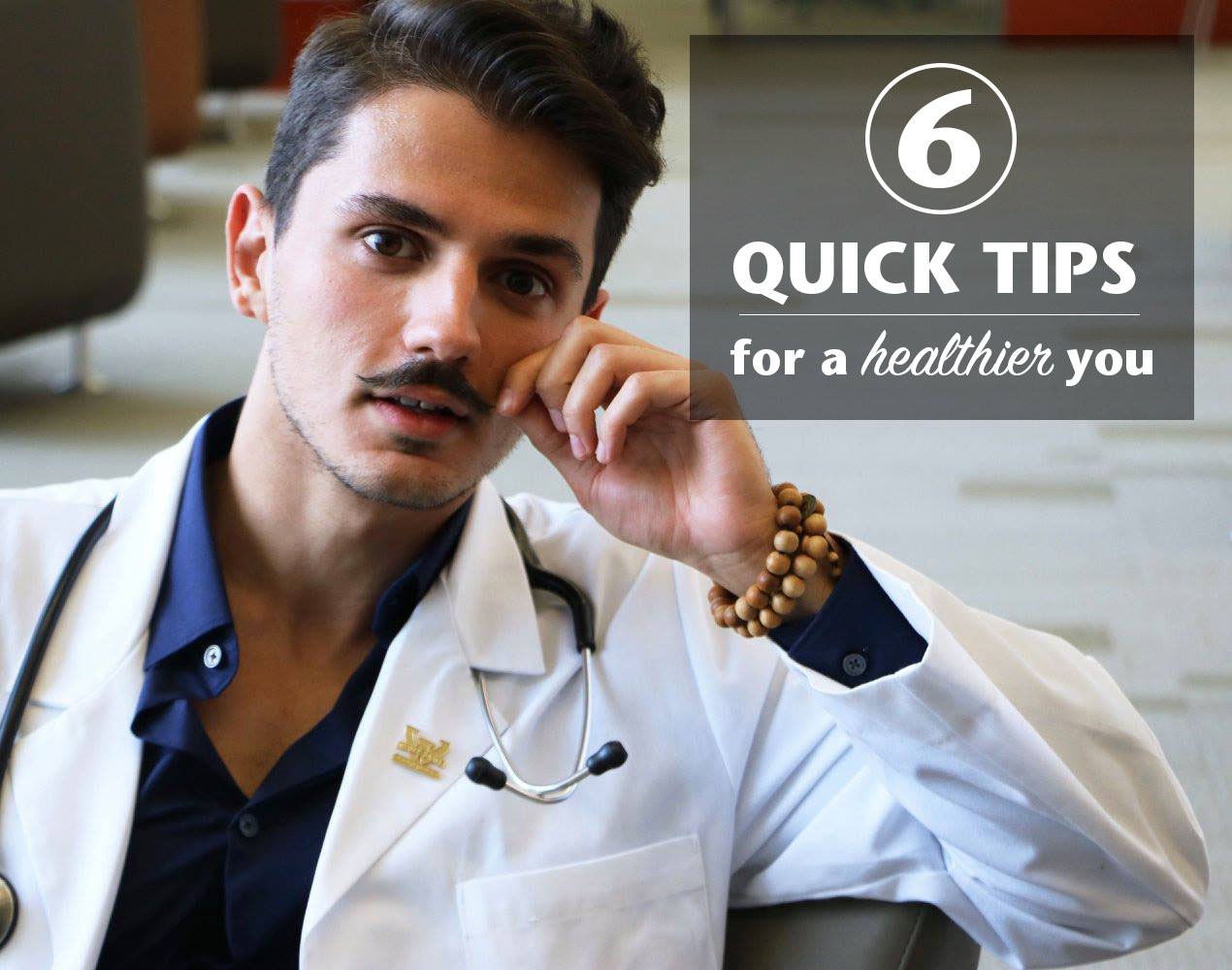
Men's Health's Awareness Month - also known as Movember - is here. For Wayne State University medical student Joe Dedvukaj, pictured, growing a super cool mustache to raise awareness of men's physical and mental health concerns is certainly a fun way to participate.
The Wayne State University School of Medicine is dedicated to raising the bar on men's health through the innovative research projects and clinical care efforts of our Department of Internal Medicine and its Division of Pulmonary, Critical Care and Sleep Medicine, the Department of Dermatology, the Department of Psychiatry and Behavioral Neurosciences, our Department of Oncology and related partnership with the Barbara Ann Karmanos Cancer Institute, and more.
Our institutional efforts to promote health for all begin with our students. In fact, the student-led American Medical Association chapter at the School of Medicine is hosting its first WSUSOM Mustache of the Year, a donation-based competition to raise awareness of men's physical and mental health concerns, while also raising money for the winner's men's health charity of choice. The individual with the most popular mustache grown for the competition wins.
"Men's health is often neglected because issues like mental health and prostate cancer are often silent," said AMA Communications and Advocacy Chair Tammy Hsia, Class of 2020.
Join our students and faculty physicians and scientists for Movember. Or, speak up, no mustache required, with these easy ways to take care of yourself and your loved ones, this month and beyond:
1. Schedule a screening. Men in their 20s and 30s should be screened for testicular cancer annually. Starting at age 50, men should talk with their doctor about getting a colorectal cancer screening, and African-American men in particular should talk to their doctor about prostate cancer screenings starting at age 45. Learn more from our oncologists at the Karmanos Cancer Institute.
2. Are you a carnivore? Scale back on the meat by eating one meat-free meal a week for better heart health and a trimmer waistline. Choosing fruits and veggies, whole grains, beans and legumes, skinless poultry, fish and low-fat dairy products every day helps reduce your risk of heart disease, stroke and other ailments, according to the American Heart Association.
3. If you're jetting to a sunny locale this winter, pack sunscreen with a Sun Protection Factor of at least 15 and reapply it liberally every two hours, suggests Professor of Oncology Lawrence Flaherty, M.D., to protect yourself against skin cancers like melanoma. Don't forget your ears, lips and the back of your neck, and wear sunglasses and hats as well.
4. Shut off your iPad and smartphone an hour before bed, stick to a bedtime routine and try to get seven hours of sleep per night, recommends Professor and Chair of Internal Medicine M. Safwan Badr, M.D., an internationally known sleep disorders researcher and a former president of the American Academy of Sleep Medicine. Getting less sleep can lead to weight gain, hypertension diabetes, high blood pressure, stroke, and cardiovascular and metabolic disorders.
5. At holiday get-togethers say "no" to holiday sweets, take smaller portions of sugar-laden holiday dishes like sweet potato casserole, cheesecake and pecan pie, or bring a health dish along to share. Go for a brisk walk after the big holiday meal. A diet high in added sugar can lead to a variety of complications, including diabetes and more, but regular exercise can help, according to the U.S. Centers for Disease Control and Prevention's Eating Tips for the Holidays.
6. Reach out to a mental health professional like a therapist or a Wayne State University psychiatrist if you or a loved one is feeling unusually stressed, overwhelmed, sad, angry, aggressive or anxious. Sometimes mental health symptoms in men appear as physical issues such as a racing heart and ongoing headaches. Men may be less likely to talk about their feelings and seek help, according to the National Institute of Mental Health.